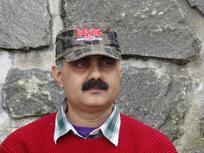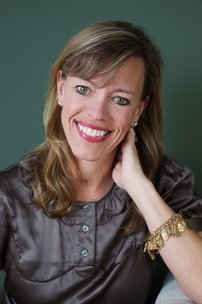|
Letter 3 – Part 4 Nod It is late, my dear. I am eager to share with you the visit to the Shelleys’ home, but I feel I must postpone the writing until I am fresher on the morrow. Until then, my love. The children are at work on their figures, and at last I can return to this letter, which should go out in this evening’s post—I shall will myself to let it on its way. I must have found the visitation of the Russian more disturbing than I believed—perhaps distracted by preparing for and anticipating tea at the Shelleys’ (a description soon to follow)—but I was fretful in my sleep and thus heard my brother’s return in the small hours of the night, of morning really. I cannot say precisely when. He was heavyfooted which makes me suspicious that he and Mr Andropov imbibed in spirits, for Robin was rather clumsy upon the stair. He has not risen and it will be noon ere long. It is not far to Marchmont Street. The day was overcast with grey clouds but not threatening rain, so it was a pleasant enough walk with the children to the Shelleys’. It made me think of how little I’ve been away from the house in recent weeks—two visits to Mr Squire’s bookshop, and of course tea at Mr Smythe’s but the latter hardly counts as away I should think. Every Sunday there is pang of guilt at not taking the children to services, but then I think of little Maurice and the guilt is replaced with anger. Rev Grayling has called upon me twice, but I’m ashamed to admit that my reception of him was chilly, perhaps he may say icy, and he has not presented another overture. After weeks of seclusion it seems the whole world is coming to me now. If only you would be among the throng, my dear. I kept the children close during our trek. Right away I noticed men noticing Agatha. She was attired most modestly, you can be assured, but there is little to be done to obscure her perfectly heart-shaped face and expressively large brown eyes, nor the chestnut strands that fell beneath her bonnet. Beyond that there is Aggie’s aura of maturity that seems to have sprung up so keenly of late. Even when she is playing dollies with Miss Buzzle it suggests a brief prelude to motherhood. I daresay she is quite a different daughter from the one you left to go on your business affair. I smile to think of your astonishment when you return. I digress. The Shelleys’ home on Marchmont Street is only trifle more than a cottage but pleasantly, though sparsely, appointed. Its lack of furnishings provides the advantageous effect of airiness. The small rooms could easily become quite as claustrophobic as Mr Smythe’s if Mrs Shelley is not careful. I delay myself from reporting what may be the most significant news: Mrs Shelley (Mae) has a son. As soon as we arrived she introduced the child, William, a mere toddler. It explained why Mae included Felix and Aggie in the invitation, although the age differentials prevented true playful intercourse. Felix and Aggie went with the boy to his nursery and entertained him with blocks and games of cat-and-rat on the chalkboard, which afforded Mae and me the opportunity to converse as adults and not merely mothers. We had only just settled with our tea when Mae confided that her husband was away because police informants were watching out for Mr Shelley on account of some outstanding debts—a misunderstanding that the poet was working to correct. It seemed a rather intimate confession to make to a new acquaintance, but my sense was that it has been weighing on her profoundly and she has had no one with whom to share the circumstance. I of course cannot relate to such pecuniary woes; however, wishing to offer some evidence of sympathy, I told of your long absence and how it affects us all. (I never forget for a moment that you are away toiling for our benefit). There was a small writing-desk in the room—the single room that serves as both receiving room and parlor—and on it were several sheets of foolscap, along with stylus and ink. I could ascertain from my position on the sofa that there was some writing on the top sheet. ‘I see you are composing—it wouldn’t be your story?’ Mae hesitated a moment; then, ‘You are uncanny. I have scraps of ideas, of images—most have come to me in a half-waking state of dream—but they do not fit together. They will not coalesce into a lucid narrative. I am quite bewildered at the notion of writing an entire book, and think of giving it up altogether. Yet it distracts me from darker thoughts . . . darker places.’ From the nursery we heard her son William’s wet and persistent cough. I do not know from where the advice sprang but I offered, ‘Perhaps you should succumb to the dark thoughts, go to the dark places, when writing I mean. Perhaps the obstacles you encounter while composing are due to your attempt to evade them rather than embrace them.’ Mae seemed unsure how to respond. I added, ‘What do I know? I am not a writer.’ ‘Sometimes,’ she said, ‘I think I shall never be either.’ The conversation took a lighter turn, and we spent a pleasant pair of hours at the Shelleys’ quaint home. Before leaving Mae insisted that Felix should borrow a volume, and we were shown into her husband’s study where their books are stored in short, open-faced cases. Felix, quite excited but attempting to mask his childlike glee, selected a collection of Bavarian folk-stories, in German. I encouraged him to choose something in English. May, however, insisted it was a prudent choice: ‘The young have a natural aptitude for languages. I acquired several languages from my father’s library—to read at least. Conversing is another matter.’ And I noted titles in French and Italian among the books immediately before us. We left Mrs Shelley, and I expressed my hope that her husband’s affairs would not keep him long. While we were visiting, the weather had turned somewhat and large drops rained down upon us intermittently. It was not unpleasant but I cannot help being anxious about the children, especially Felix, though he appears reasonably hale. No doubt it is his resemblance to his little brother that gives me over to foreboding. Never the less, we arrived home and Mrs O drew a warm bath for the children to light on the side of caution. This letter, I suppose, has gone on quite long enough, my dearest. Robin has been in his room most of the evening. I have not had opportunity to inquire about his time with Mr Andropov and whether or not he retrieved his chest. I suspect it may be in Maurice’s room. I shall trust that my brother had the good sense to inspect its contents before fetching it home. I would not want any exotic vermin transported into the house. The native sort are nuisance enough! I shall post this letter in the morning. I trust our placatory evening shall continue, and there shall be no more to report of this eventful day. I regret concluding this letter on such an ominous note but I am compelled to describe the disquieting dream that woke me in the night. I believed I again heard the horrific sounds of the slaughterhouse, except much closer at hand. My fear was chiseled and cold, like a block of ice weighing upon my breast. I wondered if another slaughterhouse, nearer by, was the source of the terrified and in turn terrifying shrieks. Then, in the manner of dreams, I was no longer in my bed but standing facing the room’s closed door, my bare feet on the hard and frozen floor. Amid the horrified lowing and bleating I believed I heard a call of ‘Mama.’ Again, ‘Mama.’ I knew it was the children. I opened the door and stepped into the hall, which was dark save for a wan glow coming from the stairs. Robin’s door was open but only partly and beyond the opening was the total darkness of a tomb. The cries of ‘Mama’ came from downstairs and were now so loud they split my ears. I clasped my hands to the sides of my head to try in vain to muffle the cries as I moved forward. There was a frigid draft in the hall as if a window had been left full open in winter. I realized my nightgown was wet with tears I’d been shedding all along. I felt the chill of the damp material at my throat as I began to make my way down the stairs—the light and the children’s cries increasing with every careful step. I reached out to steady myself, uncovering my ears and intensifying Felix’s and Agatha’s anguished cries for their Mamamamamamama. I reached the bottom of the steps and discovered the light was emitting from the kitchen, and with the realization, the very second, the children ceased their calling out. I waded through the terrible silence as if ice-choked floodwaters impeded my progress. I stepped into the kitchen, where lamplight suddenly dimmed. In the sickly yellow illumination Felix and Agatha were lying on the table, side by side and lengthwise. They turned their eyes to me pleadingly, their little faces racked in expressions of pain. A man stood beside the table. I reached out and told the children to come to me; but as I said it I saw their limbs had been severed. Their arms and legs lay in place but lifeless upon the table. The man beside the children was the Russian, Mr Andropov. He held his saw, its blade dark with blood in the poor light. ‘I had no choice,’ he said in his thick accent, then motioned with his hand that was mostly amputated toward the small table to his left where a seaman’s chest lay open, Robin’s chest presumably. I looked again to the children and their severed arms and legs were now the severed limbs of animals, the legs of cows and sheep lying where their own dead limbs had lain. I desperately attempted to make sense of the Russian’s inadequate explanation but its logic would not come to me. A kitchen window was full open and a wintry wind blew the chest shut, the sudden slam of its heavy lid waking me completely. The scene vanished but the terror of it clung to me like the dampness which had formed on my skin. It was a preposterous dream. Certainly Robin’s old mate suggested no one so menacing. I hesitated to describe it other than in the hope that writing it out would purge the silliness from my mind (and the disquiet from my soul). Thank you for listening, my love. With all My heart, M  Ted Morrissey is the author of four books of fiction as well as two books of scholarship. His works of fiction include the novels An Untimely Frost and Men of Winter, and the novella Weeping with an Ancient God, which was named a Best Book of 2015 by Chicago Book Review. His stories, essays and reviews have appeared in more than forty publications. He teaches in the MFA in Writing program at Lindenwood University. He lives near Springfield, Illinois, where he and his wife Melissa, an educator and children’s author, direct Twelve Winters Press.
0 Comments
Books are quite a crowd; friends, soulmates, acquaintances, teachers, guides, wholesalers, gleeful walk-ons, dark thought-scowlers, partners in the crimes of an insomniac mind. As messy as I am in arranging life so arranged are they in marked disarray; you may find them just about anywhere in their shelved slumber each flanked by the least even company. Once in a while a fellow strays out with me, her caller, his drop-in, sometimes one more sneaks out with the other all depending on my vagrant fancies into the world outside their little nest, Into the air within the four walls of my room, into the drawing room, or into the breeziness of a running train. You may find them just about anywhere, but never me when they stray out. don’t ever look for me when they stray out.  Prathap Kamath is Associate Professor of English at Sree Narayana College, Kollam affiliated to University of Kerala. He has published two books in English: Ekalavya: a book of poems (2012, Rochak Publishing) and Blood Rain and Other Stories (2014, LiFi, Delhi). He writes in Malayalam too, and has published in it two short story collections. Poetry Nancy Freund Rilke said give me people with secrets or something like that. I knew he sold his Super Bowl tickets for the cash, and she slept on that beach with that boy at fourteen, and she sat on that couch, East Village, pretending not to know the two of them, both lawyers, horizontal, one supine, one prone, were doing what they did. And she did… let him put his finger there, it wasn’t just she-would-have. And she, how could she not, regardless she was married, when you think of who he was. You surely understand. And she, she jumped naked from a plane. I imagine it. Injurious to my imagination. You can tell a person anything when it still holds its fire from the past its clay is warm and moldable. Two thumbs, one tongue working words and magic. Mr. Rilke gets what he requests. All about betrayal and daring proofs of love.  Nancy Freund wrote Foreword Reviews finalist for Fiction Book of the Year 'Rapeseed,' (2013) 'Global Home Cooking'' which earned the Eric Hoffer Prize Honorable Mention (2014), and 'Mailbox: A Scattershot Novel of Racing, Dares and Danger, Occasional Nakedness, and Faith' (2015), INDIEFAB finalist for YA Book of the Year. Her writing has appeared in The Istanbul Review, Blood Lotus Journal, Necessary Fiction, Offshoots, The Daily Mail, Female First, and The Sirenuse Journal. Her radio interviews have aired on BBC London, World Radio Switzerland, and Talk Radio Europe. She holds a B.A. in English/Creative Writing and an M.Ed. from UCLA. Letter 3 – Part 3 Zaanan It is the following day, my dear, bright and cheerful, and as I read over my mid-of-night missive I am tempted to remove it from this letter, to blot out what I cannot simply discard and thus excise my silliness—to have been so terrified at simply an unsettling sound. But I shall leave it in tact in hopes that it shall provide you some amusement should time hang heavy and you need some pointless diversion to ward off a bout of utter boredom. Mrs O managed to sleep through the entire episode. When I inquired regarding it this morning, as she was checking the biscuits, she was thoroughly nonplussed. Perhaps her bucolic upbringing has rendered her immune to such sounds. I have something quite extraordinary to report. There is more to Mrs Shelley than she had shared, or I should say, more to Mr Shelley. This morning, when Felix had an opportunity for unstructured reading, he brought a book from the hall and made a point of showing it to me. I did not at first grasp its significance, nor understand his zeal at brandishing it before me, holding it open. ‘Read the title page, Mama,’ he implored. Which I did: Queen Mab; A Philosophical Poem: With Notes. By Percy Bysshe Shelley. Felix left me the book, implying that I may want to read it, or suggesting I should read it. I thumbed through the volume and my eyes fell upon a particular passage (it caught in my brain like a bur in the hem of my skirt): When Nero High over flaming Rome with savage joy Lowered like a fiend, drank with enraptured ear The shrieks of agonizing death, beheld The frightful desolation spread I then felt embarrassed that I had to feign recognition when Mae alluded to her husband’s literary celebrity. I will need to read Mr Shelley so that I can discuss his work when Mae and I next meet. She departed with five borrowed volumes in hand but my distinct impression is that she is a supremely voracious reader. I must tear myself away for now, my love, and attend to responsibilities. I have confessed to an obsession with writing to you, my dear, and now I find that letting go of the letter itself, of posting it to you in Greatham, requires an exercise of determination. I begin with a blank sheet but in speaking to you I seem to create you. It is as if I conjure you before me, and the black script which creeps across the leaf weaves you; the words meant for you become you. I am quite certain I should never make the admission to Rev Grayling. Even to me it sounds undeniably occult. Yet letting go of the letter seems very much like letting you go. Again and again. Posting them to a void, to an emptiness where they disappear forever. My apologies, my dear; I so easily lapse into melodrama. I shall lighten the mood by informing you that Mrs O’Hair appears to have a gentleman caller. His name is Bob and he is the coal dealer’s fellow. He has been delivering our coal for months, but I’ve noticed that he has been coming round with greater frequency inquiring as to our needs, which are a paragon of consistency and hardly warrant such surveillance. For some time he has dealt directly with Mrs O, who has a solid grasp of our culinary and caloric needs. She will speak with him in the alley, so that he mustn’t leave horse and cart unattended. Last week I spied them through the kitchen window, and it seemed that their conversation was more animated than necessary for a common business transaction. Also it seemed that Bob had tidied his appearance. The grey hair that hung beneath his cap was a shorter length and more orderly, his beard was shaped, he was wearing a new apron, still besmudged by the unavoidable coal dust but not as tattered and worn. I thought little of the transformation. Then just this morning on the table in the kitchen was an assortment of dried flowers gathered with a lavender ribbon. I asked Mrs O regarding them. She became flustered, amusingly so, and was reluctant to name Bob was the source of the bouquet. I let the matter drop but found it quite charming. I know, my dear, that I mustn’t be seen to condone such alliances; and I shall be mindful. But, still, at their ages it is difficult to see the harm—other than if I were to lose the clever Mrs O to an affair of the heart. Speaking of Mrs O, she has just delivered to me an invitation arrived by post to call on Mrs Shelley, and she has invited me to bring the children. (I fear Mrs O may have read reference to herself when she handed me the note—she came upon me so quietly, here at the table, that I didn’t take precaution. She may suspect I am reporting on her to her unknown master.) Having only begun a new sheet, I shall have ample space to add report of our visit to the Shelley residence. There is no mention of Robin, so she must intend a sort of ladies conclave. I hope Felix shall not feel too out of place. If need be I will hand him a book, and he will be quite content in the meantime. (To resume.) I had thought the visit to Mrs Shelley was going to be the only interesting event of the day, but I was mistaken. Not long after I left off writing (about mid morning) Felix came to me to say there was a stranger in the alley asking after his uncle. I asked Felix for further intelligence of the fellow—I must acknowledge that ever since my brother’s arrival I have half expected the district’s constabulary to come inquiring of Robin, though it is an unfounded and unfair expectation. All that our Felix was able to articulate was that the stranger had a difficult accent. I stepped into the alley. The street at the alley entrance was busy, but I found no man loitering about. I returned inside to see if I could extract anything further from Felix. Before I could commence my interrogatories, however, there was a knock at the door. Mrs O was up to her elbows in the dough she was kneading for our kidney pie, so I went to the door myself. Standing there was a tall fellow in a black coat. He had a reddish grey beard and in hand was an odd-looking cap, also black. ‘Good day, madam,’ and he definitely bore a foreign accent, perhaps German or eastern European, I thought. ‘I am inquiring to locate Robert Walton, master of the Benjamin Franklin.’ I asked him his name, to which he proffered a card, almost as if he’d been keeping it in his funny-looking cap. In handwritten script was his name and a street address. ‘And your business with Captain Walton, Mr Andropov?’ ‘I was carpenter on the Franklin, Mrs Saville, and I am in possession of the captain’s chest.’ So this fellow, apparently a Russian, knew my name. Below his left eye was a scar that ran beneath his beard. ‘Do you have the chest with you?’ I inquired, glancing toward the street for a dray or cart, some sort of conveyance. ‘No madam. The captain’s locker is safely stowed at the room I am renting.’ He nodded toward the card in my hand. I assured him that I would give my brother the message but he was not at the moment available. Mr Andropov thanked me and replaced his odd, brimless cap to his head, and by doing so I saw that the hand holding it had only the first finger and thumb, which convinced me beyond doubt he was a member of Robin’s crew. Robin was in his room. It would have been simple enough to install the Russian in the parlor and rouse my brother, who likely would be quite pleased to recover his seaman’s chest. Yet I chose to send the Russian away. It was as though my brother had escaped horrible death in the plutonic land of ice, and in the person of Mr Andropov it had come calling for him—to complete what it had begun. I felt a maternal need to keep the Russian from my brother as if Mr Andropov were a personification of Death. It is an irrational idea and no doubt wholly unfair to the gentleman who obviously remains loyal to my brother. I resolve to be more clearheaded on the matter. I placed the card on the foyer table, where apparently my brother discovered it while I was calling upon Mrs Shelley—for Robin was absent when the children and I returned. In fact, he is absent still, which is a trifle worrisome. I remind myself he survived the Arctic waste so surely the streets of London will not be his undoing.  Ted Morrissey is the author of four books of fiction as well as two books of scholarship. His works of fiction include the novels An Untimely Frost and Men of Winter, and the novella Weeping with an Ancient God, which was named a Best Book of 2015 by Chicago Book Review. His stories, essays and reviews have appeared in more than forty publications. He teaches in the MFA in Writing program at Lindenwood University. He lives near Springfield, Illinois, where he and his wife Melissa, an educator and children’s author, direct Twelve Winters Press. I don’t really pay much attention to dreams. To someone like me the world is as it seems. But what I dreamed last night – it caused me to wake, left me soaking in sweat, made my whole body shake. I was walking through fog in a dark wooded dell and a clear and safe path was beyond me to tell, til I had the idea that I’d stand on a log And I hoped that with luck I’d see over the fog. My head rose through the mist – and indeed, I could see – a large group of folk sitting under a tree. “Why stand there alone?” a voice called from that place. “We see anguish like ours inscribed on your face. We all sit here weeping in sadness and grief, for intolerable burdens that find no relief.” So I sat down and joined them – I clearly could see That my place was there with them, right under that tree. One poured out a tale of pain and of fears, of hopes that had faded and waned with the years. He spoke of regret, opportunities lost; And the wealth he’d pursued at immeasurable cost. He’d devoted his life to making a buck til he ran out of chances and ran out of luck. And he mused on his gains in great happiness won, his ambition fulfilled til ambition was done. But ambition’s a whore who is silent and cold deserting her lovers when lovers grow old. To one side stood a woman, alone and aloof who had held good intentions way back in her youth, But intentions grow brittle and harden with years And choke like new flowers on distractions and fears. She’d hungered for love, whatever that meant, and considered each lover to be heaven sent. But they rose up in sequence and each fled away though she tried to cling on in the hope that they’d stay, til one stayed a lifetime in sullen disdain and she finally realised the loss in her gain. A third called to angels and looked to the sky. And the cry of his heart was repeatedly ‘Why?’ “My wife died in childbirth. My son died at war. My daughter left home – we don’t speak any more.” He haemorrhaged anguish that poured out like rain and I feared that his sadness would drive him insane. He looked up to Heaven, exuding his grief and appealed to his maker to give him relief: “Why does it hurt so? Why is it so hard? And why do you treat me with such disregard?” But the sky deluged silence, the wind blew so cold. He felt empty and lonely and terribly old. A fourth wept for sadness, and cried out in pain, For the ending of sunshine, the coming of rain. He cried in frustration, sweat blood from his brow “Why for this was I chosen? Why is the time now?” He wept in his sadness, again and again for intolerable sorrow on missing a train. He wept for his anger and wept for his hate for immovable rocks, irresistible fate and wept most for the knowledge that now was too late for the paying of debt and the wiping of slate. The fifth was a writer, a poet no less And I saw that she too was beset by distress. For she wept for eternity bound up in time and wept for the poems she could not make rhyme, incarnations she’d lived and more lives to come, incantations un-chanted, and prizes un-won, for lovers deserted and parting of ways the burdens of youth and the Ancient of Days for her words left unspoken, her works left half done and I realised her grieving had barely begun. As the long day wore on and the tears poured on down I, too, joined in weeping. A man of renown, I’d pursued adulation and fortune and yet was beset by the knowledge of callings unmet. So I cried to the moon and the stars and the sun opportunities past, with no more to come. I wept for the living and wept for the dead And wept that I could be so easily led. So I wept and I wept til I ran out of tears, til at last in that place a voice came to my ears. An angel called gently, a smile on his face and he bade me sit down in a less crowded place. And he said ‘look before you, say what can you see?’ And finally, then, I stopped looking at me. My attention went outward, away from myself until slowly I realised that in this lay health. And I looked straight ahead with eyes that were clear And decided to look despite all my fear. And there stood before me, transcending the years, the woman who washed the Christ’s feet with her tears. If any knew weeping, then this was the one and the end of her story was mine, just begun. To that woman I said, “Let your story be told,” and she smiled as she gave me her secret to hold. She then asked me to promise to share it abroad and shout from the heavens this ultimate word. So this I share with you as wretched you feel and honestly wonder if it can be real. Please take my word for it – I’ve known from my youth This powerful secret, this momentous truth. And thus by this secret our friendship I’ll seal. For the secret is simple. It is that tears heal.  Michael Forester is a deaf writer living in the UK’s New Forest. He commenced writing in the 1980s. Since the turn of the millennium Michael has written poetry, fiction and mind body spirit works. His first creative book If It Wasn’t For That Dog, about his first year with his hearing dog, Matt, was published in 2009. This was followed in 2016 by Dragonsong, an Arthurian epic fantasy poem in rhyming 16th century English. His short Story collection The Goblin Child was published in the same year. His first international tour will take place in February 2017 to the Philippines. His books are available at his website, michaelforester.co.uk Novel Ted Morrissey Letter 3 – Part 2 Ophir As I said, I was quite at the point of conceding Mrs Shelley when there was a knock upon the door. Mrs O, who must have been listening for any sign of our guest’s arrival like an Irish wolfhound, was at the door immediately and ushering Mrs Shelley to the parlor. She wore the same grey dress as she’d worn to Mr S’s, with the addition of a tartan wrap draped about her narrow shoulders and pinned at the left. There was something about the colorful accessory which magnified the crystalline quality of her eyes. I was reminded of the marble statuary at the National whose chiseled orbs were always quite vivid in their attitude, yet nevertheless made of stone—a fact the viewer can not overlook no matter how skilled of the sculptor. I greeted Mrs Shelley, who soon was asking that I call her by the familiar name of ‘Mae, m-a-e’ (May), and I introduced the children to her, inviting her to be seated on the mohair sofa. Momentarily Mrs O brought the tea and the little scones she had prepared. It was a most congenial and cozy atmosphere. Due to the prominence of books in the room, not only filling the bookcases but stacked along the walls and sitting about here and there on the salon table and arms of chairs, et cetera; and of course Mae’s ostensible reason for paying the visit—she right away began commenting on them and inquiring of the source. I told the tale of my uncle and my sole inheritance. Mae then related how her father is a writer as well as a publisher—and she mentioned her husband in a way that suggested I was already aware of his status as writer and poet. I did not desire to demonstrate my ignorance, nor to insult her if it were a case of a wife’s assessment of her spouse’s talents and reputation being intemperate; thus I was mainly taciturn on the subject suggesting, I hoped, an air of recognition. ‘My mother was an author, as you may know,’ said Mae and of a sudden her mood turned as if the mention of her mother, long deceased apparently, struck an icy chord within her—a subject still raw to the touch, if I may mix my metaphors. ‘You have writing in your blood then,’ I said in a voice intended to recover our gaiety. ‘That may be,’ said our guest, coaxing from herself a wan smile. ‘I have written a little. My Shelley encourages me to attempt an entire book but I am not certain of a subject. Words flow from him like rays from the sun, and just as golden, only ceasing for necessary nocturnal rest; and I’m not confident he fully comprehends that that isn’t a quality granted to all in equal measure.’ ‘It may be,’ I said, ‘that he knows something about you which you are not willing to believe yet. It is not unusual for us to misunderstand—or even overlook entirely—our own gifts.’ ‘You may be right,’ said Mae, her mood lightening. ‘What are your gifts, beside knowing just what to say?’ I was taken by surprise at her turning the subject back on me. ‘I don’t know that I would term it a gift, but I’m quite fond of stitchwork and perhaps have a little talent for it.’ As you know, my dearest, I normally do my stitching in the kitchen where the light is best but I had brought my current work to the parlor to help pass the time as we awaited our visitor (though the light in fact proved unsuitable and I took up the volume of Pryor instead); nevertheless, I had the piece there beside me, beneath the sofa pillow, and I removed it to show Mae. Inexplicably I was suddenly and profoundly on edge, as if a schoolgirl showing my sums to a fastidious teacher—awaiting praise or persecution, either equally possible. Why I should be so desirous of this girl’s approval was (is) unclear—yet another effect of her magnetic persona perhaps. It was a bridal piece on which I have been working: bells and bows and baby’s breath, leaving space for a date to be added, ample blues and yellows, with the thinnest thread of grey outlining the flower petals otherwise they would be lost white upon white. I describe the piece in such detail to relate what enthusiasm Mae expressed over it, complimenting its harmonious balance and the precision of my sewing. ‘I swear,’ she said, ‘if I could create such beauty with needle and thread I wouldn’t bother with taking up the quill. But alas I was never encouraged in the domestic arts.’ It was generous in the extreme for her to say (I am quite certain I blushed, as I am quite certain I am blushing now at recounting the compliment—and I trust my darling will excuse my indulging my ego). My candle burns low. I had not intended to wax so while it waned, but I find that once the words begin to flow trying to cease them is tantamount to taming a raging river, the sort they have in the Americas, an Amazon or a Niagara. Perhaps it is because I feel closest to you when I am ‘speaking’ to you as I am now. Until tomorrow, my love-- I record a most unsettling episode. I write in the deepest recess of night, with only the last nub of a candle, and I do not wish to rummage for another, though I know precisely where Mrs O keeps them. The evening was warm so I went to bed with the window raised, against my preference as you know—although, my trepidation was less than it may have been, with Robin in the house, and also it is difficult to account but being in the company of Mrs Shelley seems to have charged me with a tiny jolt of her independent spirit. In any event we all retired somewhat early, and I fell fast asleep. I believe I slept dreamlessly until I was suddenly awake due to a noise that was some distance off yet nevertheless quite distinct. How to describe it? It was the sound of screaming, of shrieking, but not just a single terrified voice: many. As if a massacre were being perpetrated somewhere in the district. The horrific noise struck me cold. I lay in bed fully awake, terrified, frozen. But to my own credit only for a moment or two before I thought of the children and their well-being. I robed and shod myself quickly, meanwhile the horrific sound persisted. My candle was low but I lighted it and crept into the hall, where the clamor was effectively muffled. I soon ascertained the children were secure and asleep. Robin’s door was ajar however. I carefully descended the stair, feeling unsteady, which was perhaps effected by the candle’s uneven flickering, on the verge of being extinguished by a persistent draft, and the partnered light and shadow which weirdly waltzed upon the wall. Just as I touched the floor the flame went out altogether but not before I saw that the front door was open and not before I heard the terrible noise renewed. My heart pounded against its cage of ribs as if wanting escape. One might have thought that I would be paralyzed with fear, but I kept moving, probably because the open doorway offered the only source of light, though it be just a faint twilight of contrast against the deeper shadows. When I reached the threshold I saw a figure just outside, which at first startled me; then the figure spoke, ‘I heard a similar wailing in Reykjavik.’ It was Robin, who’d sensed my presence. I joined him on the walk before the house. The street was as still and as oppressive as a graveyard. Meanwhile the terrible sounds continued. ‘What was it, brother?’ I realized I still gripped the useless candleholder; my fingers were sore with the force I absentmindedly exerted. ‘A slaughterhouse where they discovered disease among the stock. They were killing the sick animals en bloc to halt contagion.’ I listened to the terrified shrieks of the doomed. I imagined the damned being prodded by impish demons to a fiery hell. I had no sense of how near or how far the slaughterhouse was. As we stood there the terrible sounds dwindled to just a few animal voices, then two or three, then a single desperate lowing in the darkness. Then a silence more awful than the sound. Robin and I returned indoors, and to our rooms. I lighted the candle which I set on the table by my bed, for the darkness lay heavy upon my heart.  Ted Morrissey is the author of four books of fiction as well as two books of scholarship. His works of fiction include the novels An Untimely Frost and Men of Winter, and the novella Weeping with an Ancient God, which was named a Best Book of 2015 by Chicago Book Review. His stories, essays and reviews have appeared in more than forty publications. He teaches in the MFA in Writing program at Lindenwood University. He lives near Springfield, Illinois, where he and his wife Melissa, an educator and children’s author, direct Twelve Winters Press. Review/Essay Helen de Búrca on her winning story in the Strands International Short Story Competition  Stories are like dreams; as for dreamers, it’s not always obvious to the writer where they originate. Even for a story like “The Fiery Angel”, which is of course based on the theme of fire, I’m not entirely sure how the different parts of it came together. Writing to a theme or prompt is intriguing: the exercise of shaping a broad concept into a specific narrative sparks unexpected images and taps into concerns or fears that may be conscious but often are not. So, when I began to think about fire as a theme, one idea quite soon imposed itself: that of people bursting into flames. If I think about it consciously, this image is not as unexpected as it first appeared. Western Europe, where I live, is currently in a state of panic and paranoia, and this seems to worsen day by day. In many ways, we have less cause to fear than most parts of the world, where daily violence, repression and instability, hunger and poverty, or danger from natural phenomena destabilised by human greed, are hourly risks. The word “terrorism” has insinuated itself into our psyches like a menacing shadow. Many speak of it as if it were a new fear, although it is not. Many forget that terrorism will, for the vast privileged majority, probably remain no more than a fearful word, even though many of us may know someone who has been affected in some way by the most recent acts of terrorism in Europe. Many forget, or do not notice, that it is a vague term, a coverall, a net that is increasingly thrown over any act of apparently motiveless, organised, non-state violence. It is a word that has the power to control, no matter who wields it, for it means both far more and far less than what the dictionary attributes to it. How better to scare people into submission than by using language in this way? How better to make people comply than to tell them that they must act and think in a certain way in order to be protected, or at least in order to avoid being the next victims – which is to say that by not acting and thinking as instructed, they may be the next direct sufferers? There has been a lot of talk of the abuse of language recently; in a nationwide act of ironic consumerism, George Orwell’s 1984 has apparently sold out in the United States. The day on which “The Fiery Angel” gripped me and did not release me until a first draft was glaring back at me from the screen was also the day – a few hours before this story wrenched itself into being – on which the unbelievable result of the U.S. election was announced. So it is not so wonderful that “The Fiery Angel” roared out from a dark place. Even the reference to Sergei Prokoviev’s opera, which seemed an appropriate intertext because it involves, among many other things, demonic possession and the seduction of a woman by what she thinks is an angel but is in fact a man, also suggested to me the way in which repressive regimes suppress culture in order to prevent independent thought. The character of Dr Sidney naturally revealed himself as a brother of Orwell’s cultured O’Brien, or of certain Nazis who managed to reconcile destructive and sadistic beliefs and acts with a genuine passion for music and literature. I know little about the background to Prokoviev’s Fiery Angel, but I discovered it last year when it was recommended to me during a discussion about another Russian opera, Lady Macbeth of the Mtsensk District, in which I became interested partly thanks to Julian Barnes’ The Noise of Time and partly thanks to a wonderful translation by Fabrice Guibentif of the libretto (which all just goes to show how one idea gives birth to others). The story of, or rather the background to, Lady Macbeth of the Mtsensk District was also an influence when I wrote “The Fiery Angel”, for, in the sufferings of its author, Dmitri Shostakovich, it is the story of how culture may be suppressed and instrumentalised. It seems almost fateful that, just a while after discovering this, I came to read Madeleine Thien’s wonderful novel Do not say we have nothing, which is, like The Noise of Time, about music, and particularly about how music and musicians were used and abused during and after the Cultural Revolution in China. It is a hard-hitting novel, and yet it is also about how culture finds ways to subvert its own manipulation; and although it’s questionable whether Shostakovich ever felt free of the yoke, nevertheless, Lady Macbeth too has survived the gag order that was placed upon her. Despite all of this, it has been a surprise to me to see increasingly dystopian and horrific stories issuing from my metaphorical pen (I mostly type my stories, in an effort to maximise my writing time, of which I have far too little). After all, I don’t intentionally read very much dystopian fiction, although when I was younger I was a devourer of the stories of M. R. James, H. P. Lovecraft, Edgar Allen Poe and as many examples of Gothic horror as I could get my hands on. The last overtly dystopian material I read was Louise O’Neill’s accomplished, chilling debut, Only ever yours, and, much more recently, the Irish literary journal The Stinging Fly’s winter 2016-17 issue on the theme of horror and fantasy. However, as with the cliché that it is the wars and not the peacetimes that history catalogues, it is difficult to shape a narrative of any sort without including conflict; or perhaps I’m seeing dystopia everywhere when I consider some of my last memorable reads: Liam O’Flaherty’s Famine, which, inexplicably, has not been re-issued for decades, is in many ways about the end of the world; Shirley Jackson’s The Lottery and other stories delivers us into an uncanny parallel universe – and that is just in the stories of everyday suburban life; Bulgakov’s The Master and Margarita offers up a world that may function according to an entirely different logic to that of our own – or may not be so different; while Tom McCarthy’s Remainder is an extreme reminder, similar to that of Éric-Emmanuel Schmidt’s Le secte des égoïstes, that each of us literally shapes the world to fit our own view of it… Then again, I have also recently read Isabel Allende’s El Amante Japonés, Lia Mills’ Fallen, Rose Tremain’s The Road Home and Sarah Waters’ The Paying Guests, all of which contain dark material but end on a note of hope. I can only hope that there is hope for us all…  Helen de Búrca was born in Ireland and lives in Geneva, Switzerland. Her work has been recognized by the Cúirt New Writing Prize, the Sunday Business Post/Penguin Ireland Short Story Prize, the 2016 Nivalis Short Story Competition, the “Dalkey Creates” Short Story Competition, the Wasafiri New Writing Prize and the Aesthetica Creative Writing Award. She writes in English and French. |
StrandsFiction~Poetry~Translations~Reviews~Interviews~Visual Arts Archives
April 2024
Categories |
 RSS Feed
RSS Feed